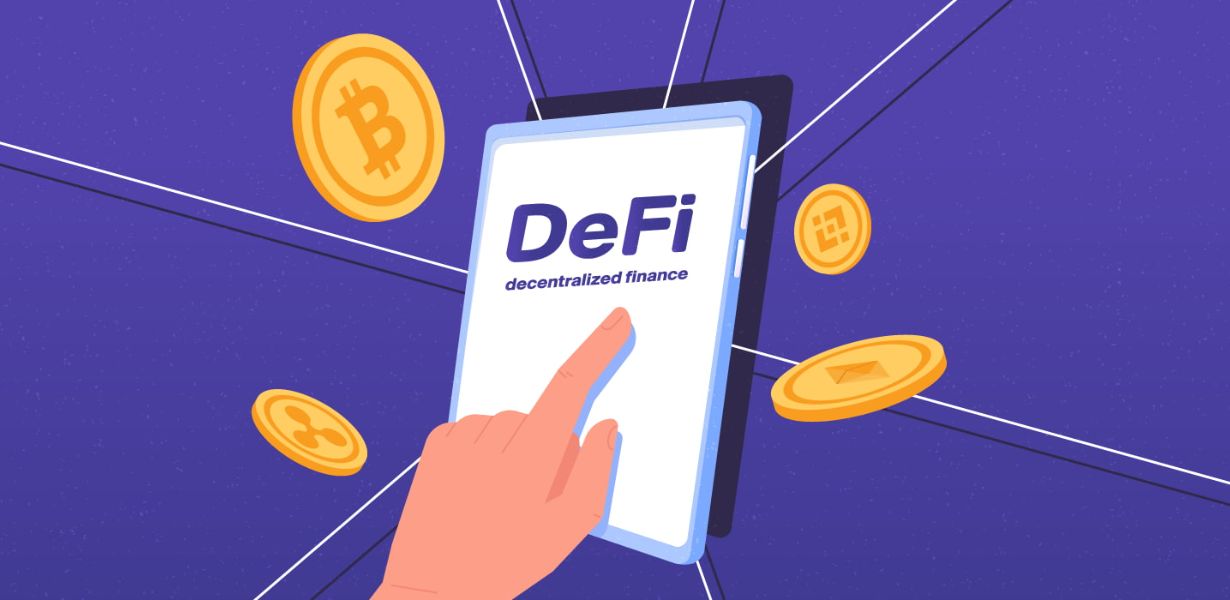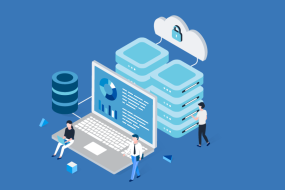
In the world of finance, a revolutionary transformation is underway, and it’s all about decentralization and scalability. These two concepts may seem complex at first, but they hold the key to reshaping the financial landscape as we know it. Welcome to a deep dive into the world of decentralized finance and scalability, where we will uncover the essential aspects of these concepts and their significant implications.
What is Decentralized Finance (DeFi)?
Decentralized Finance, commonly referred to as DeFi, is a groundbreaking movement that aims to create an open and permissionless financial system. In essence, it leverages blockchain technology to build an ecosystem of financial services that are not controlled by traditional centralized institutions like banks. Instead, it operates on smart contracts and decentralized platforms. DeFi allows users to participate in various financial activities, such as lending, borrowing, trading, and earning interest, without the need for intermediaries. This opens up a world of opportunities for anyone with an internet connection to access financial services previously reserved for the privileged few.
Key Points:
DeFi is a decentralized financial system.
It operates on blockchain technology and smart contracts.
It offers open and permissionless access to financial services.
The Promise of Scalability
One of the critical challenges that DeFi faces is scalability. Scalability refers to the ability of a system to handle an increasing workload without compromising its performance. In the context of DeFi, scalability is essential to ensure that the network can accommodate a growing number of users and transactions efficiently. Scalability is vital for DeFi platforms to meet the demands of a global user base and maintain low transaction costs. As DeFi grows in popularity, the need for scalable solutions becomes increasingly evident.
Key Points:
Scalability is the ability to handle increased workloads without performance issues.
It is crucial for DeFi to accommodate a growing user base.
The Role of Blockchain in DeFi Scalability
Blockchain technology is the backbone of DeFi, and it plays a pivotal role in addressing scalability challenges. Several innovative solutions are being developed to enhance the scalability of blockchain networks, such as layer 2 solutions, sharding, and improved consensus mechanisms. Layer 2 solutions, like the Lightning Network for Bitcoin and Optimistic Rollups for Ethereum, aim to reduce congestion on the main blockchain by enabling faster and cheaper off-chain transactions. Sharding, on the other hand, divides the blockchain into smaller, more manageable parts, allowing for parallel processing and increased transaction throughput.
Key Points:
Blockchain technology is crucial for DeFi.
Layer 2 solutions, sharding, and improved consensus mechanisms enhance scalability.
Challenges and Trade-offs
While scalability is essential for DeFi’s success, it comes with its set of challenges and trade-offs. For example, as DeFi platforms scale, they may become more centralized, contradicting their core principles. Additionally, security concerns may arise as new, untested solutions are implemented. To strike the right balance between scalability and decentralization, the DeFi community must carefully consider the trade-offs involved and prioritize the security and integrity of the ecosystem.
Key Points:
Scalability may lead to centralization and security concerns.
Balancing scalability and decentralization is a challenge for DeFi.
Real-world Applications
The impact of DeFi and scalability is not theoretical; it’s already transforming the financial world. Projects like Aave, Compound, and Uniswap have made decentralized lending, borrowing, and trading a reality. These platforms are handling billions of dollars in transactions, demonstrating the feasibility of DeFi scalability. The concept of decentralized exchanges (DEXs) is also gaining traction, offering users the ability to trade cryptocurrencies without relying on traditional centralized exchanges. This shift has the potential to disrupt the entire financial industry.
Key Points:
DeFi projects like Aave, Compound, and Uniswap are already in operation.
Decentralized exchanges are challenging traditional financial institutions.
The Future of Finance
As we explore the world of DeFi and scalability, it becomes clear that we are witnessing the evolution of finance as we know it. The traditional financial system is being challenged by innovative solutions that prioritize accessibility and inclusivity. While there are challenges to overcome, the potential for a decentralized, scalable financial ecosystem is incredibly promising. The key to unlocking this future lies in the continued development of blockchain technology, the responsible handling of scalability, and the collective effort of the DeFi community to build a robust and secure financial system.
Final Words
Decentralized finance and scalability are not just buzzwords; they are the pillars of a financial revolution. As the world moves towards a decentralized financial ecosystem, the possibilities are limitless. While challenges exist, the promise of financial freedom and inclusivity is worth pursuing. Embrace the change, stay informed, and be a part of this transformative journey into the future of finance.
Commonly Asked Questions
1. What is the primary advantage of DeFi?
The primary advantage of DeFi is its open and permissionless access to financial services, making them accessible to anyone with an internet connection.
2. How does DeFi impact traditional financial institutions?
DeFi challenges traditional financial institutions by offering decentralized alternatives, potentially disrupting their dominance.
3. What are some scalability solutions for DeFi?
Scalability solutions include layer 2 solutions, sharding, and improved consensus mechanisms, which aim to increase transaction throughput and reduce costs.
4. Are there risks involved in DeFi scalability?
Yes, there are risks, including the potential for centralization and security concerns as DeFi platforms scale.
5. How can individuals get involved in the DeFi movement?
Individuals can get involved by researching and using DeFi platforms, participating in governance, and contributing to the community’s growth.
Advertisement







